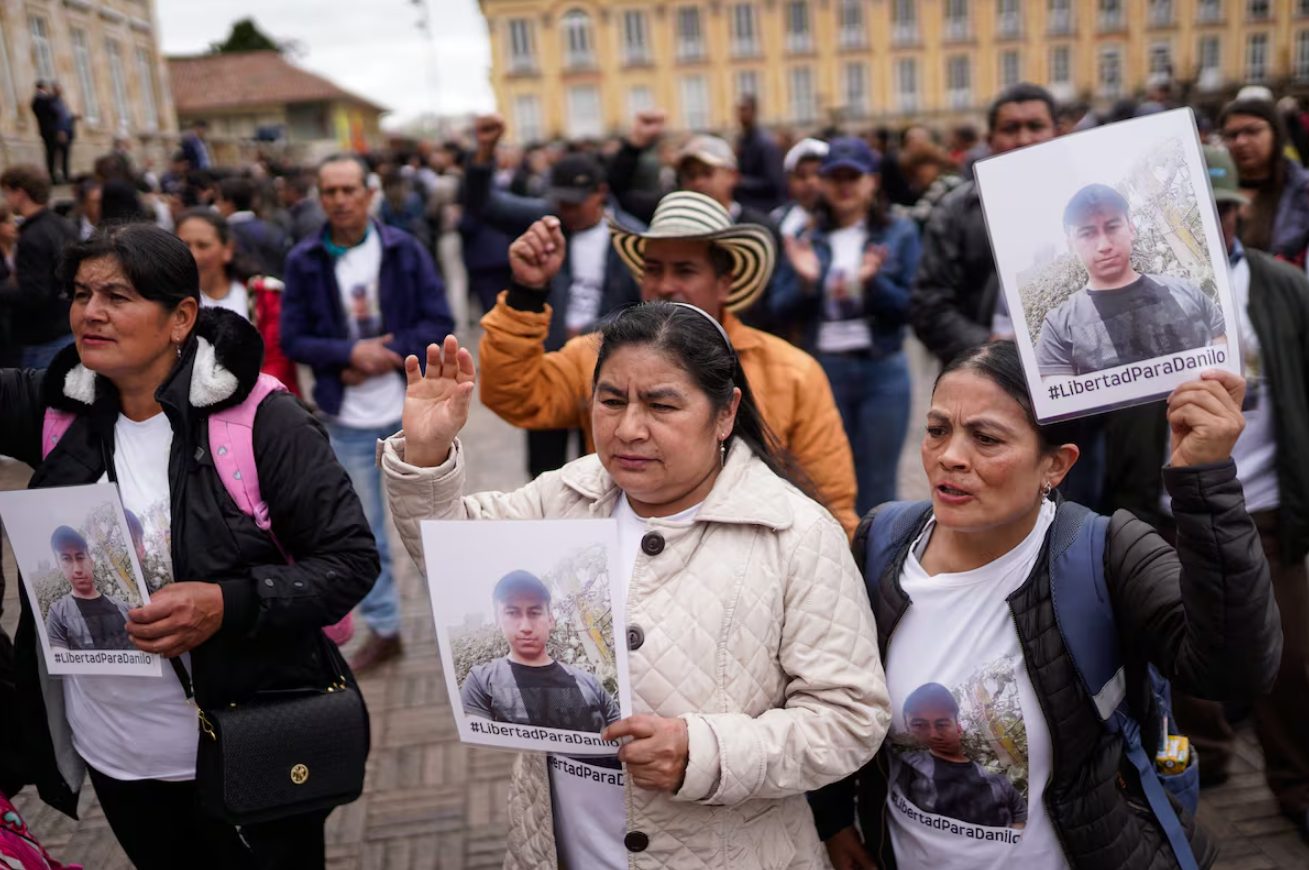
“All he wanted was to give his mother a hug after five years without seeing her,” says Yeraldy Enciso, Danner Barajas’s wife. He was detained on November 7, 2024, as soon as he crossed the border from the Colombian department of Arauca to visit her in Venezuela. Enciso spent six months without being able to communicate with her husband, whom she describes as a peasant and farmer who also works as a bricklayer in Facatativa, the municipality where they live, an hour and a half by road from Bogotá. The motorcycle taxi driver who was driving him says that the Venezuelan military detained him at the first checkpoint on the other side of the José Antonio Páez International Bridge. They then sent him to Caracas, but they still don’t know for sure what charges they are holding him on. She has already been able to call him twice, on May 15 and June 26."I've come to protest for him, because he can't raise his voice from there," she says in the heart of Plaza de Bolívar, the heart of Colombia's capital.
Most of the protesters on the steps of the Capitol on this cloudy Tuesday were wearing T-shirts with the image of a Colombian man imprisoned in Venezuela. Police prevented them from chaining themselves to the fences, as they had planned for a protest. This is the fifth protest called by family members and friends, who are demanding that Gustavo Petro's government intervene diplomatically to secure the release of their loved ones, arbitrarily detained in the neighboring country."After each protest, there might be at least one phone call. If we stay still, the government won't do anything," Enciso laments.
“We're almost a year into this fight, and until we have everyone in our homes, we won't rest,” exhorts Viky Latorre, a 41-year-old lawyer and wife of Martín Emilio Rincón, a 57-year-old palm grower. She's accompanied by Paula Rincón Latorre, 22, one of the couple's five children. She portrays him as a present and loving father. He also crossed the border from Arauca last September to see some land, with all his documents in order, his wife assures. He had never been to Venezuela before. After ten days without news, they learned that he had been detained in Apure state and was being charged with terrorism-related crimes. “We didn't understand anything,” Latorre recounts. They sought support from Venezuelan lawyers, but none of the appeals they've filed have been resolved. They also received an initial call on May 15, which she equates to “proof of life.” Until then, it was considered a forced disappearance, she asserts."We call it kidnapping because they have no consular visits, no family visits, no phone calls. They're being held illegally," he concludes.
A total of 35 men and three women of Colombian nationality are imprisoned in Venezuela after being detained following the presidential elections on July 28 of last year, the Foreign Ministry confirmed this week. Diplomatic sources tell this newspaper that, although Colombia has repeatedly requested information about their legal status and procedural guarantees, it has not received a response from Nicolás Maduro's regime. Most are being held in El Rodeo prison, on the outskirts of Caracas, without consular authorities being able to visit them."We are at the mercy of the Colombian government's actions, and specifically what President Petro does," says Diana Tique, sister of Manuel Tique, a Danish Refugee Council employee detained in September in Venezuela.
“I have learned through a significant number of your testimonies of the suffering caused by uncertainty and the difficulties in accessing information about your relatives,” wrote Deputy Foreign Minister Mauricio Jaramillo Jassir this week in a public letter apologizing to the families of compatriots detained abroad. “Many have told me how they have not been able to have a moment of peace without knowing the mental or physical health of their relatives. I cannot imagine the nightmare they go through every day with such uncertainty,” he stated, without making specific reference to Venezuela.

